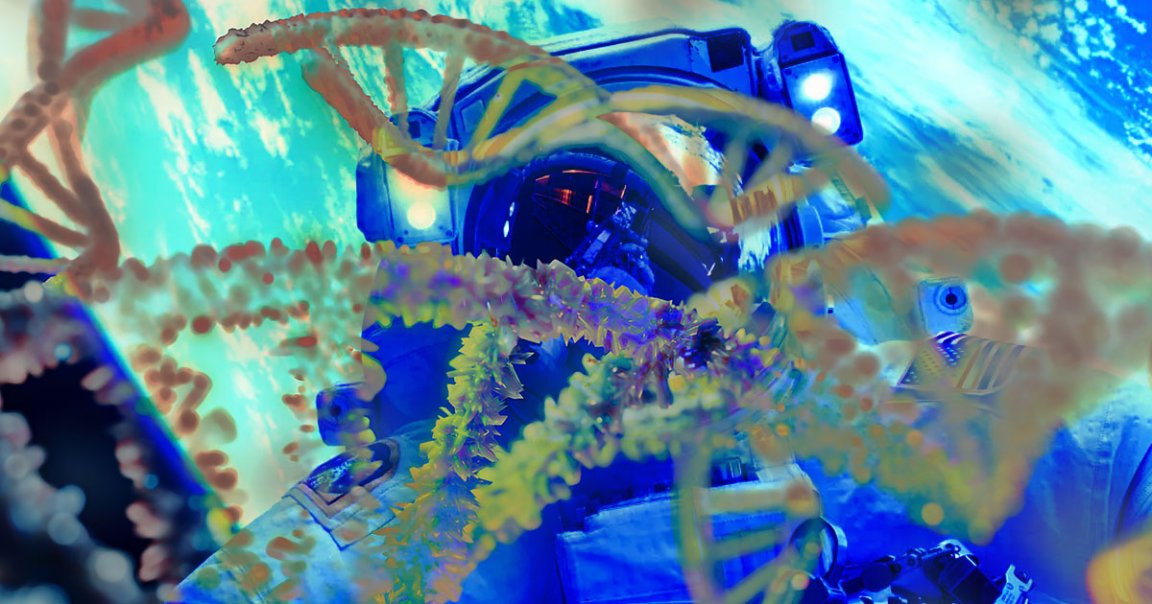
Researchers have found that human stem cells are constantly under stress in the microgravity of space — activating hidden, ancient sections of DNA called the “dark genome.”
In a study published in the journal Cell Stem Cell last week, a team of researchers led by Sanford Stem Cell Institute director Catriona Jamieson used a cellphone-sized device on board the International Space Station to watch how stem cells behave in space for the first time.
They found that donated bone marrow stem cells from hip replacement surgery patients aged faster on board the space station than samples back on Earth, which could deteriorate astronauts’ ability to regenerate in orbit.
It’s a sobering finding, bolstering a growing body of evidence that space radiation and microgravity could have a litany of associated health risks — and representing yet another risk factor in our plans to spend more time traveling deeper into space.
Previous research has also found that spending time in microgravity can lead to bone loss, muted cognitive abilities, and deteriorating vision.
“In space, stem cells decline in function,” Jamieson told CNN. “They actually reduce their ability to renew themselves or regenerate, and that’s an important thing to be able to know for long-term space missions.”
The findings could have important implications for astronauts’ health, the researchers warn, especially on astronauts’ immune system.
“It’s important to study stem cell health and see who’s likely to be able to withstand the rigors of space — it’s stressful to get up, it’s stressful to come down, and it’s stressful to be up there,” Jamieson told CNN.
What’s accelerating this decline is the “dark genome” inherent in our DNA, which was left behind by “retroviruses that invaded our genomes thousands and thousands of years ago and represent 55 percent of our DNA,” as Jamieson told CNN.
“They send the stem cells into a death spiral,” she added. “The cells just feel overstressed. They have a crisis. They age too quickly.”
Fortunately, now that the researchers have identified the issue, Jamieson and her colleagues are already working on clinical trials for medications that could suppress this aging process.
According to CNN, an upcoming study has also found that stem cells may be able to recover once back on Earth, allowing astronauts to undo the harmful effects of microgravity.
Interestingly, these “countermeasures” could even “accelerate the pace” of cancer research, Jamieson told the broadcaster — meaning that protecting the health of astronauts could lead to positive outcomes for patients back on Earth, as well.
More on astronaut health: Something Is Malfunctioning With Astronauts’ Brains